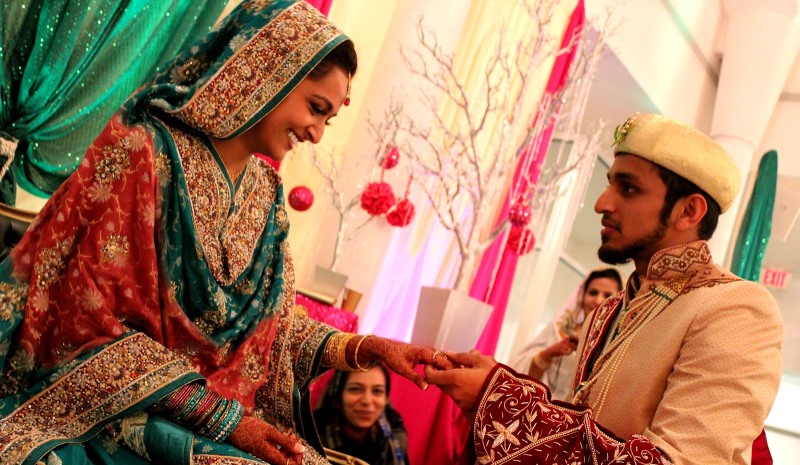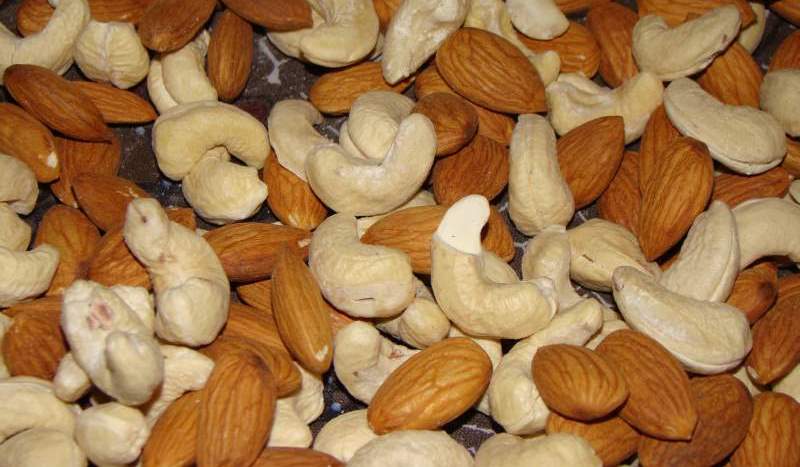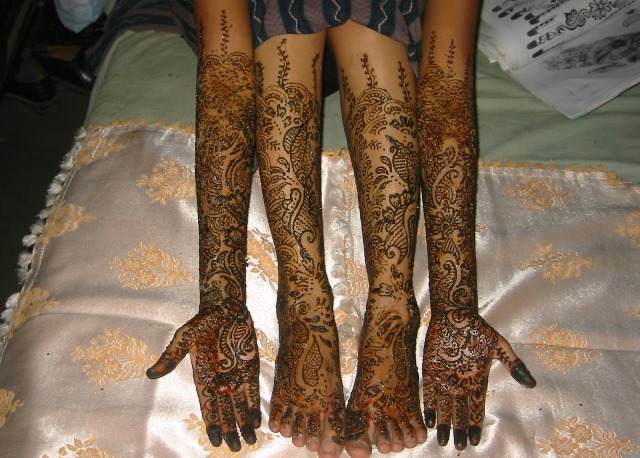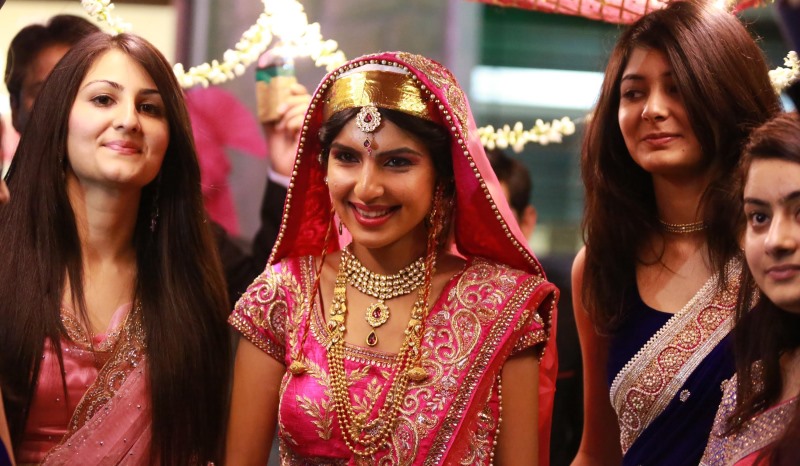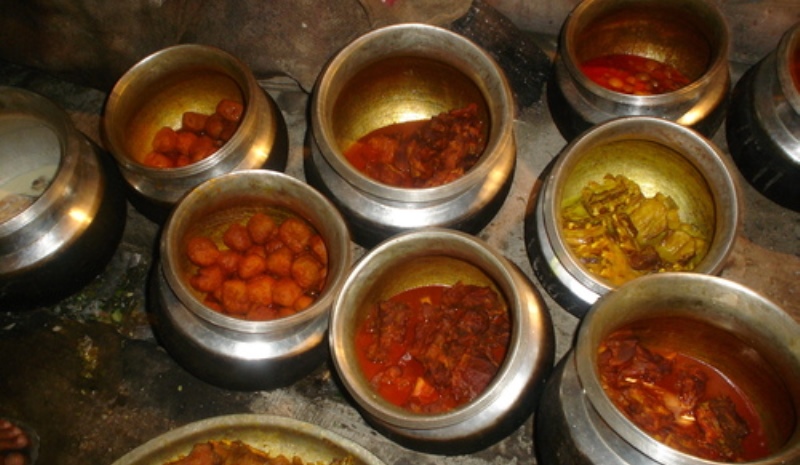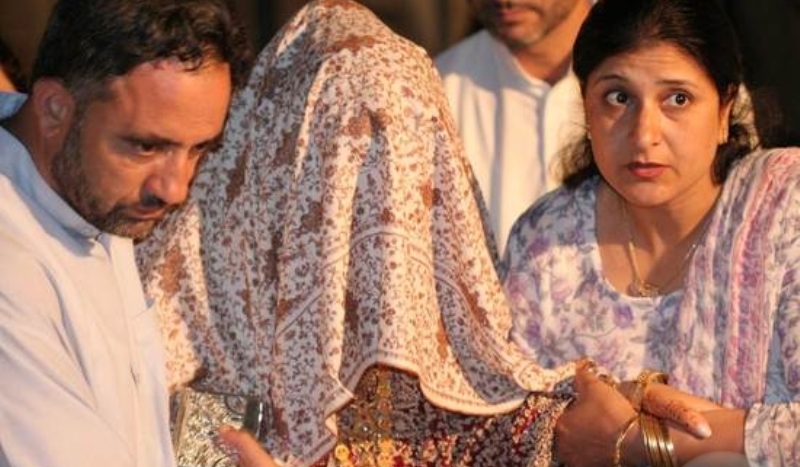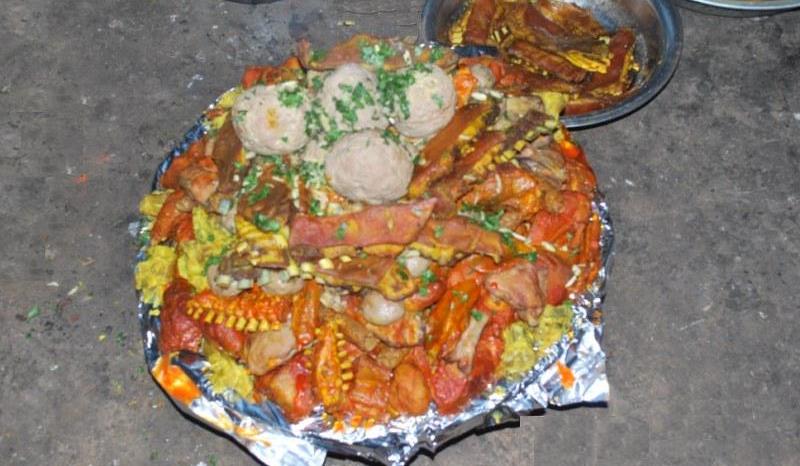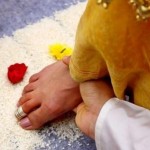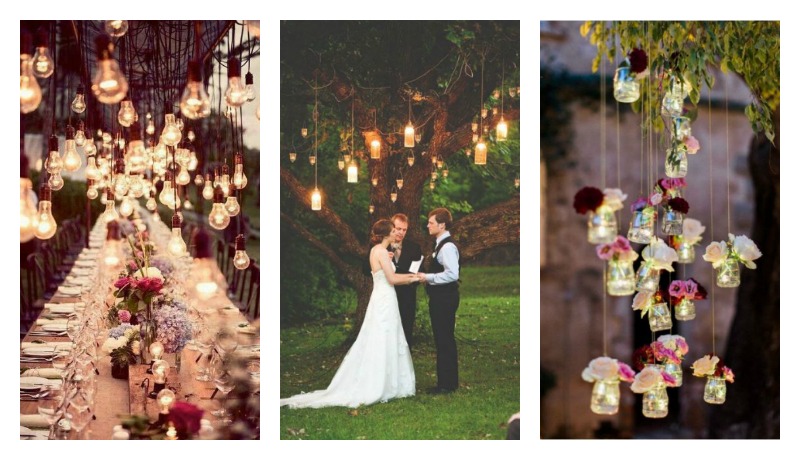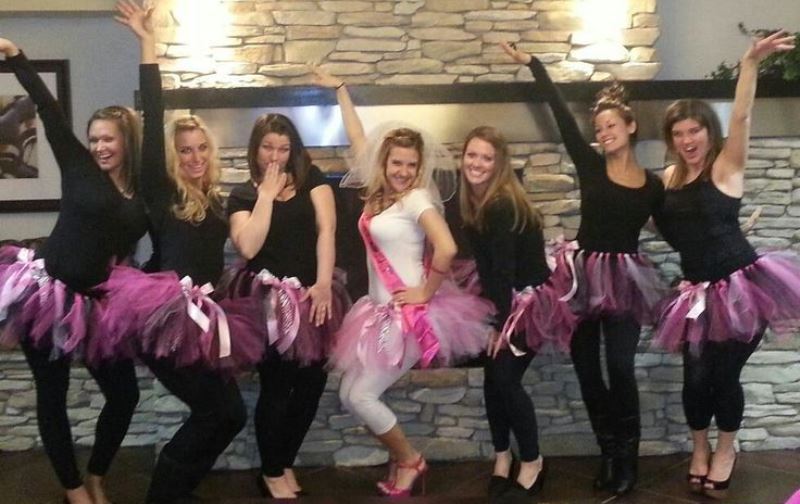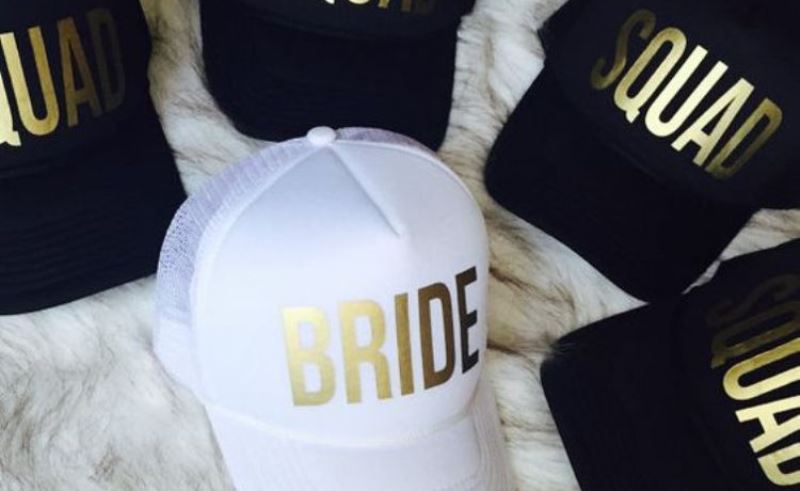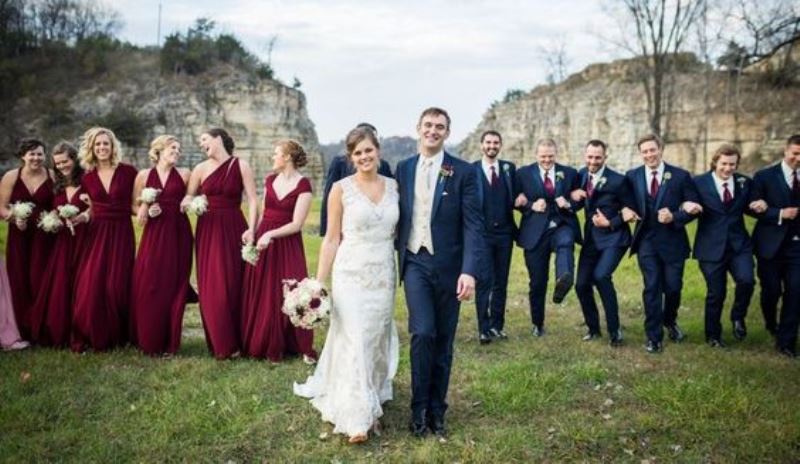“But let there be spaces in your togetherness and let the winds of the heavens dance between you. Love one another but make not a bond of love: let it rather be a moving sea between the shores of your souls.” ~ Khalil Gibran
Kashmir is India’s northernmost state and the weather and terrain here make for some unique wedding rituals. Previously, Kashmiri Muslim weddings used to extend for a week or 10 days, but nowadays, the rituals have been minimized to just a few days. Here is a look at the general proceedings of Kashmiri Muslim wedding rituals.
Before the Wedding
1. The engagement is first held at the bride-to-be’s home, where the groom’s family sits with her family and a priest, who carries out the official betrothal and fixes a date for the wedding. Some jewelry may be gifted to the bride as a token of the engagement. A small feast is served to the guests and gifts of dry fruits are presented to either side.
Image source: Google, copyright-free image under Creative Commons License
2. About a week before the wedding, women get together at the bride’s and groom’s houses and sing traditional folk songs, the themes of which are either religious or wedding-related. They use a traditional drum called the Tumaknari.
Image source: Google, copyright-free image under Creative Commons License
3. The day before the wedding is the ‘Mehendiraat’, where the groom’s family sends over Henna or Mehendi for the bride and it is applied in intricate designs all over her arms and legs. And it’s not just the bride, other women in the family make the most of the occasion too!
Wedding Day
1. On the day of the wedding, the bridegroom gets all decked up in a new suit and turban and gets ready to set out for the bride’s home. He takes the blessings of all the elders in the family and leaves with a party of friends and relatives.
Image source: Google, copyright-free image under Creative Commons License
2. The women of the bride’s family welcome the groom singing traditional wedding songs praising the beauty of the bride and groom. The groom’s party is then ushered inside, where they are treated to a feast fit for a king.
Image source: Google, copyright-free image under Creative Commons License
3. One thing that occupies center stage among Kashmiri Muslim wedding rituals beside the bride and groom is the Wazwan. The Wazwan is a very elaborate feast that is the pride of Kashmiri Muslim culture. There can be as many as 30 dishes, and each one is carefully cooked by a team of 40 or so people called wazas, headed by the head chef or Vaste Waza. Many consider the quality of the Wazwan to be an indicator of the overall success of the wedding!
Image source: Google, copyright-free image under Creative Commons License
4. After the feast, everyone sits down for the Nikaah, the official marriage contract in a Muslim wedding. The groom holds the hand of the bride’s father and a priest recites verses that bind the two in marriage. The bride’s consent is sought, following which the concerned parties sign the marriage register, along with a couple of witnesses. The groom hands the bride her Meher, or dowry, usually in the form of jewelry.
5. The wedding now officially sanctioned, it is time for the bride to leave for her marital home. She accompanies her husband and his relatives, amidst tears and lots of singing.
Image source: Google, copyright-free image under Creative Commons License
6. On arrival, the bride is seated in a special decorated seat and her veil is kept lowered. Her mother-in-law lifts the veil and presents the bride with some gifts or jewelry. The bride also gifts her new mother-in-law a token gift, often a piece of jewelry.
After the Wedding
1. Many people have a more contemporary function called the reception after the wedding, where they invite their friends and colleagues. This isn’t a traditional function and has a more informal atmosphere.
Image source: Google, copyright-free image under Creative Commons License
2. The bride stays at her marital home for seven days, after which she visits her parental home along with her husband. They are greeted with a lot of enthusiasm and a special feast is served for the new son-in-law.
Kashmiri Muslim wedding rituals are examples of the unique Kashmiri culture, like the beautifully embroidered clothes, the sumptuous Wazwan, and the traditional folk songs of old Kashmir. In a land that is often in the eye of a storm, the people don’t let their enthusiasm die and they ensure that every occasion is celebrated in the way it deserves to be, and weddings top the list!
Featured image source: Google, copyright-free image under Creative Commons License
